What are Drivers?
At Edwards Hall, we aim to ensure that our children receive a school curriculum that is designed to broaden their horizons and extend the boundaries of their lives, equipping pupils with the knowledge and cultural experiences they need to succeed. To this end, teachers and leaders work to ensure the curriculum we offer is enriched and personalised to our children and that it prioritises the things we want our children to experience.
Making Links
So much of education hinges on children’s ability to make links in their learning. Building on previous understanding is an essential process. To enable this, our curriculum is carefully structured so that children are not only able to build on the learning that has taken place previously in that subject, but also use learning from other areas of the curriculum to make sense of new concepts. For example, children do not learn about how to sketch shadows until they have completed the science unit on ‘Light and Shadows’. This ensures that they are able to understand more deeply, make cognitive links to secure learning in their memory, and become more successful.
Learning is structured around a SOLO taxonomy approach (see below for more detail), which teaches children how to think about the links in their learning and ensures that when planning, teachers consider what prior knowledge will need to be activated in order to be successful, and how to build learning within the unit. Through answering ‘Big Questions’ (outlined in ‘Key Principles’ section), children are required to form links in their learning.
Resilience
Learning is not always straightforward, and does not always produce immediate results or success. Teaching children this fact, and supporting them to use it to their advantage, engenders confidence and tenacity, and can and must be taught. This is achieved through modelling of making mistakes; a learning process that includes editing, refining and changing; a strong focus on problem-solving and a metacognitive approach that develops self-reflection. The broadest sense of purpose in this teaching is for children to become life-long learners, able to persevere in adverse situations and ‘bounce back’ after a set-back in any area of their adult life.
Possibilities
We know our learners are capable of doing great things beyond school. We are passionate about ensuring that even from a young age, they are exposed to a range of possibilities to broaden their aspirations and build their confidence. In discrete subjects, we learn about experts and people of influence, as well as what their roles entail. Wherever possible, we encourage visits from specialists in their fields, for example, oceanographers and cartographers, linked to the areas of study. In addition to this, we work with outside agencies to host careers events, where children can meet a range of workers from a range of workplaces. These have previously included roles such as lawyers, home office border force, research scientists, illustrators and occupational therapists.
Oracy
Communication is the key to ‘articulating ideas, developing understanding and engaging with others’. It encompasses both learning to talk, and is the vehicle for learning through talk. We value this because it:
- Increases confidence
- Improves academic outcomes
- Fosters wellbeing
- Equips students to thrive in life beyond school
- Narrows gaps
- Promotes social equity
The art of effective communication needs to be explicitly taught and deliberately practised. Children at Edwards Hall are given opportunities in every subject to practise oracy skills, divided into the following 4 areas: Physical, Linguistic, Cognitive, Social & Emotional
The Arts
We identify the Arts as those areas of creative expression embodied in visual art, music, dance, drama and literature.
Developing an appreciation of high-quality art enables children to understand a broad range of political, religious and emotional viewpoints, can engender deeper enjoyment of the areas of study and a fuller appreciation of situations in context. Being able to express themselves across all areas of learning and understanding through the medium of the Arts creates a powerful tool for children’s communication.
Diversity
Our school diversity priorities focus on gender, religion, ethnicity and ability. While some subjects, such as Religious Education, provide specific opportunities for diversity to be celebrated, other areas must be sought out. For this reason, in all subjects where influential people are celebrated and studied, careful consideration has been made to include persons from a diverse range of backgrounds as possible, including where it challenges cultural stereotypes. In the books that are studied in English, we cross reference to ensure that there is a celebration of diversity, that a range of cultural backgrounds are represented and that our strong lead characters include those that do not conform to stereotypes (See English Policy and Reading Spine for detail).
Environment
Social responsibility is an increasingly important characteristic for human life. The heading ‘environment’ encompasses our belief that children should understand their role in both local and global issues. This includes not only an understanding of the headline issues, but as the children get older, the wider contexts and grassroots issues that lead to those headlines. We foster opportunities for children to take the lead in local initiatives in ways such as campaigning, fundraising and small-scale practical engagement e.g. litter-picking.
